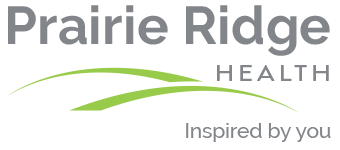FOR IMMEDIATE RELEASE
Contact: Patti H. Walker, Community Relations Manager
920-623-1280
pwalker@prairieridge.health
Prairie Ridge Health is excited to announce the construction of a new 23,000-square-foot clinic at 155 South Mallard Drive in Sun Prairie. The new clinic will be conveniently located near Highway 151 for easy patient access. The clinic will be open Monday – Friday from 8 a.m. – 5 p.m. with expanded hours for Rehabilitation.
“We have made a conscious decision to invest in the growth of our clinics to help meet the needs of the communities we serve, including the new Sun Prairie location,” says John Russell, President and CEO of Prairie Ridge Health. “Our Sun Prairie clinic will offer a variety of services including Family Medicine, Orthopedics, Dermatology, Allergy and Immunology, General Surgery, Psychiatry, Nutrition Services and Diabetes Education, Occupational Therapy, Physical Therapy, and other ancillary services.”
“The look and feel of the Sun Prairie clinic will be very similar to our hospital and clinics,” says Hannah Young, Director of Clinic Operations. “Every aspect of the facility has been carefully crafted with the patient experience in mind. The clinic has a warm and open design, offering an inviting experience for patients.”
Prairie Ridge Health is an acute care hospital located in Columbus, with outpatient clinics positioned in Beaver Dam, Columbus and Marshall. The Sun Prairie site will be Prairie Ridge Health’s fourth outpatient clinic.
“We are excited to open the clinic in the Sun Prairie community to increase patient access and extend our services by living out our mission, ‘by building caring relationships with those we serve, we guide the journey to health and wellness,’” added Young.
For more information regarding Prairie Ridge Health, visit www.praireiridge.health or call 920-623-2200.
###
Empowering patients to take an active role in healthcare decisions is a priority for Nathan Johnson, DO, MS, orthopedic surgeon, when discussing hip and knee joint replacement surgery as part of the orthopedic excellence program at Prairie Ridge Health in Columbus. Dr. Johnson, who has been growing his orthopedic practice in Wisconsin for the past four years, joined Prairie Ridge Health in November 2023.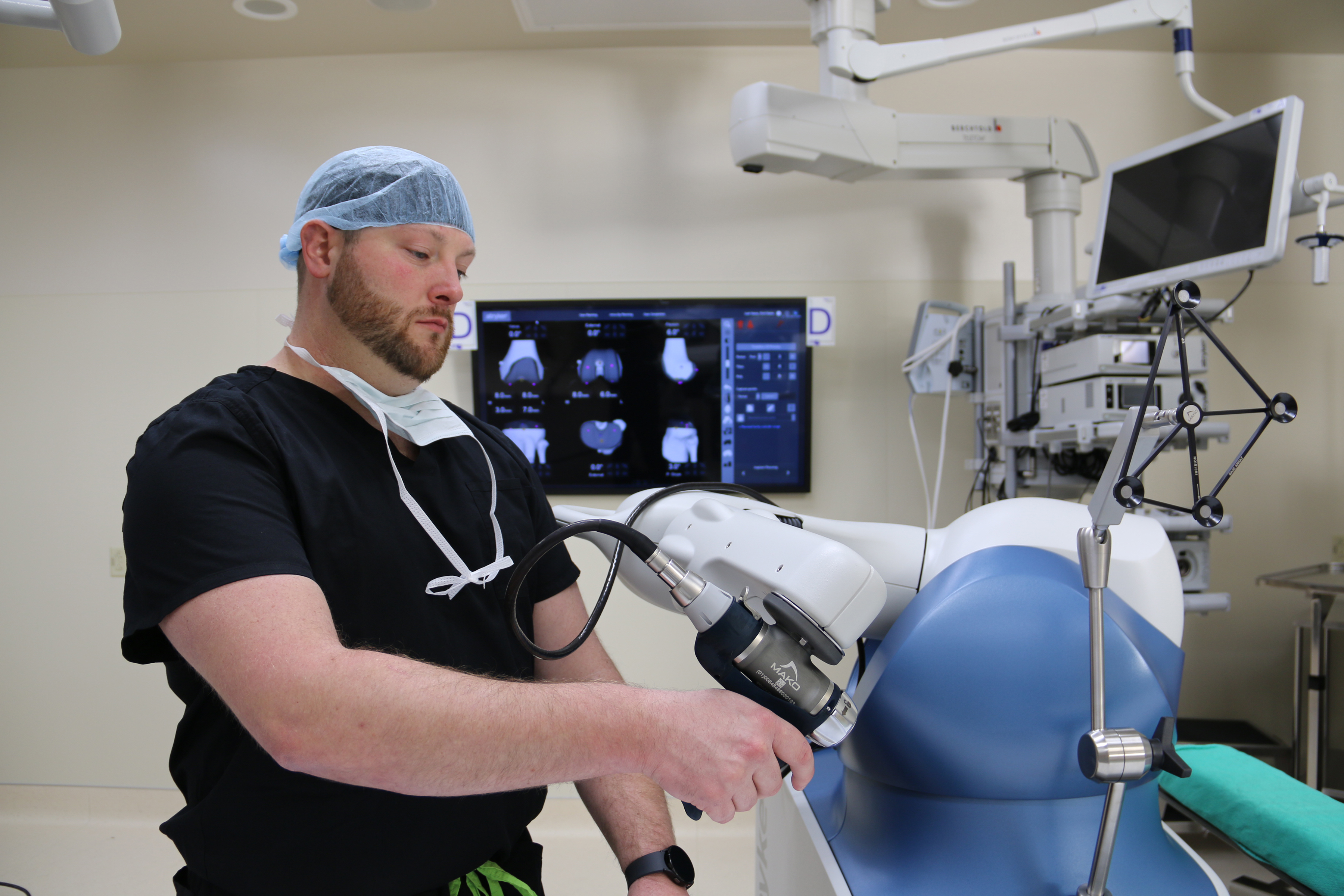
“My job is to educate the patient about their ailments and provide options for treatment, so that they are actively engaged in their healthcare. While in medical school the Dean addressed our class and said that the origin of the word doctor is ‘to teach’. That stood out and I really took it to heart,” said Dr. Johnson.
Dr. Johnson grew up in West Salem, Wisconsin, where he spent his time working in construction and on farm. He was exposed to healthcare at an early age, his mom was as a Registered Nurse and his father worked as a purchasing agent at the local hospital. “With healthcare being in the family, working with power tools growing up, and also being an athlete through high school and college, I wanted to become an orthopedic surgeon, and at first sports medicine, but in residency I realized that my number one love was joint replacement.”
Robotic assisted surgery is part of Dr. Johnson’s practice. He uses Mako™ robotics for total knee replacement, total hip replacement and partial knee replacement surgeries. “I was a very big skeptic of using robotics during joint replacement surgery. I was a huge critic. I thought, if you needed a robot, you shouldn’t be doing the surgery. But, after using it for joint replacement surgeries, I was able to see the significant advantages it has with complex deformities and revisions, and even straight forward replacement cases. I a.m. now a 100% believer in robotic technology for joint replacement surgery as I’ve seen the amazing benefits it can provide.”
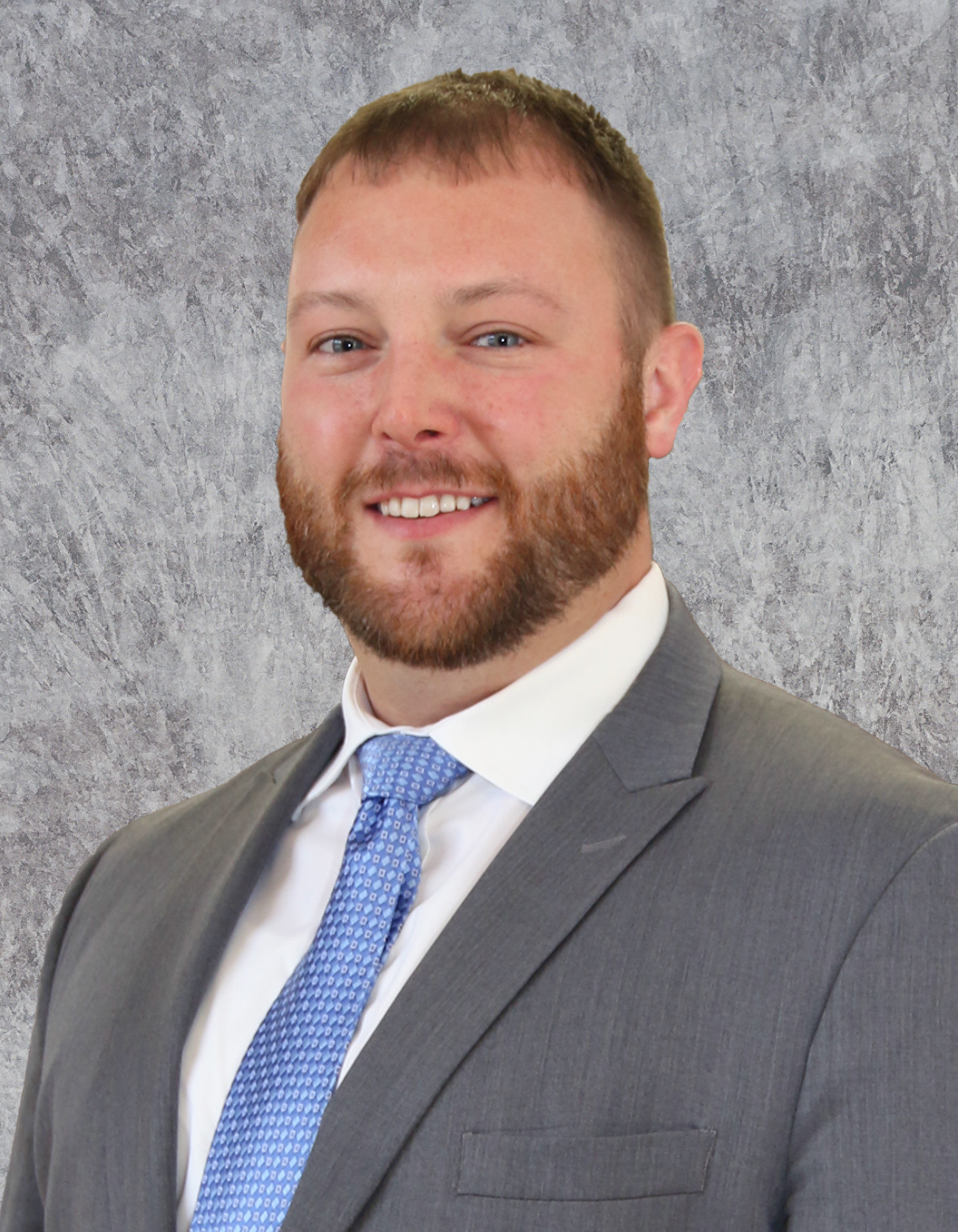 Recently, Prairie Ridge Health purchased a Mako™ robot and is now one of only 12 surgery centers in the state of Wisconsin to use the Mako™ robot. Before surgery, a CT scan of the patient’s joint is taken and used to develop a 3D virtual model of the patient’s joint. This allows the surgeon to evaluate the patient’s unique anatomy, bone structure, disease severity, joint alignment and even identifies the exact location of preexisting hardware that some patient’s may have had already prior to their joint replacement surgery.
Recently, Prairie Ridge Health purchased a Mako™ robot and is now one of only 12 surgery centers in the state of Wisconsin to use the Mako™ robot. Before surgery, a CT scan of the patient’s joint is taken and used to develop a 3D virtual model of the patient’s joint. This allows the surgeon to evaluate the patient’s unique anatomy, bone structure, disease severity, joint alignment and even identifies the exact location of preexisting hardware that some patient’s may have had already prior to their joint replacement surgery.
A 3D virtual model of the joint enables the surgeon to create a personalized surgery plan based on the patient’s unique anatomy.
During surgery, the surgeon guides the robotic arm, which uses AccuStop™ haptic technology, which provides vibrational feedback so they can cut less and help protect the patient’s surrounding soft tissues including ligaments and tendons.
“It is robotic ASSISTED surgery,” explained Dr. Johnson. “The robot can only do what I tell it and when I tell it. The technology allows me to plan the surgery (what size implants, where to put them, any deformities). I can make adjustments on the fly as well based on how your anatomy looks intraoperatively. Robotics allows me to do the surgery more accurately and precisely, with cuts being within a ½ a millimeter, which is incredible.”
Dr. Johnson says that he is looking forward to having a budding schedule and would like to see the Prairie Ridge Health Orthopedic Program become a destination site for elective orthopedic procedures, including joint replacements and sports medicine.
“I want to be a great resource for my patients and medical colleagues. I’ve been blown away by how the Prairie Ridge Health care team really cares about not only taking the best care possible of our patient’s, but also taking care and supporting each other as colleagues and teammates as well! Everyone takes pride in doing the best job they can possibly do every day. They truly care to help out with their patients and their colleagues, both professionally and personally. That is not universal in healthcare, but it’s something that we have here at PRH and is very special.”
While orthopedics is his career, Dr. Johnson says he is first and foremost a husband to his wife, Laura, and a father to his children, Vivian (2 yrs) & Olivia (7 mo) “Family is very important to me. That being said, I treat my patients as though they were a member of my family, giving them the respect and knowledge they deserve to make decisions.”
Dr. Johnson is seeing patients in both the Prairie Ridge Health Clinic Columbus and Beaver Dam locations. For more information call 920-623-1200 or visit PrairieRidge.Health.
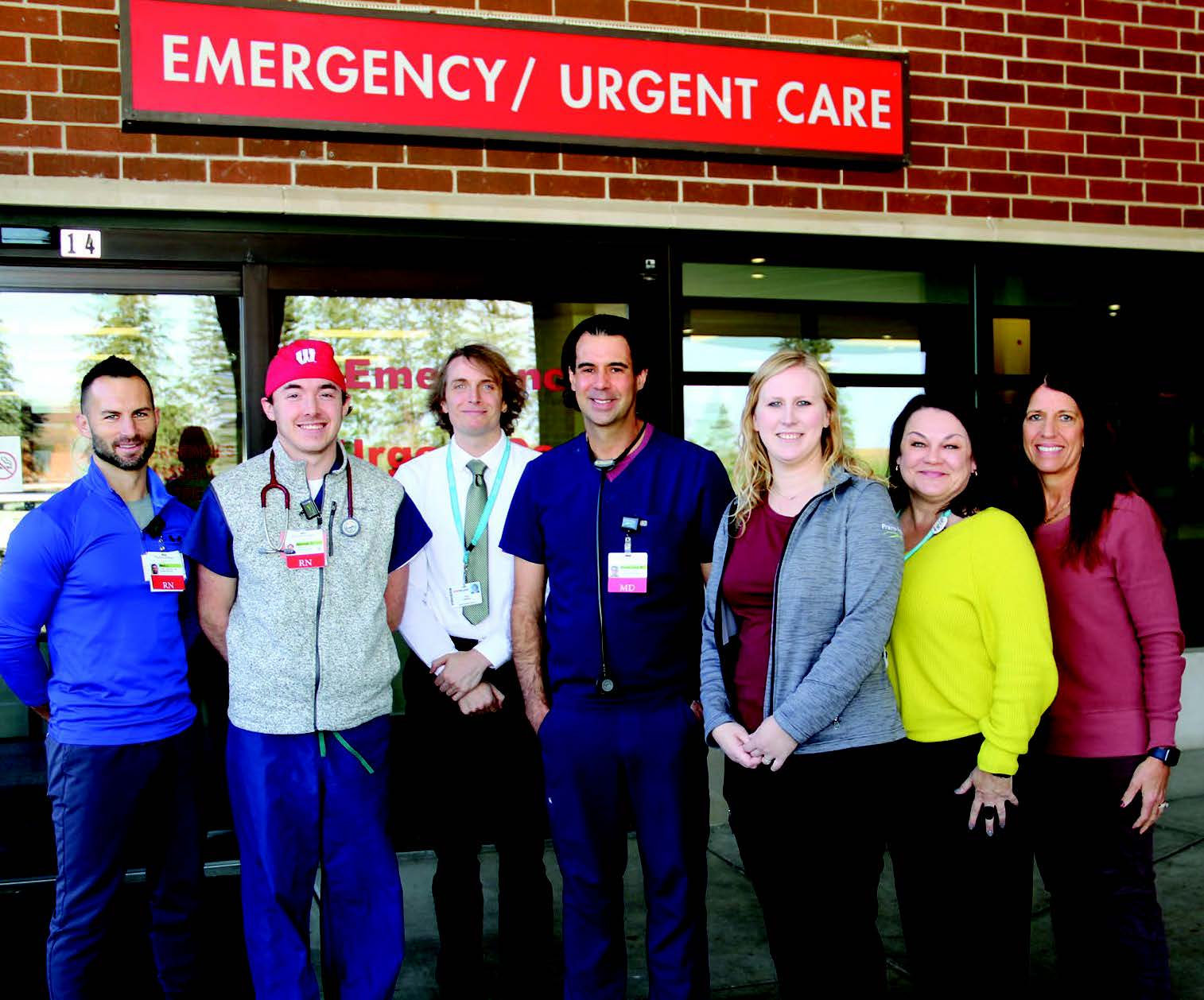 Every day, more than 100,000 people are waiting for lifesaving organ transplants. Every nine minutes another person is added to the waiting list. Of those waiting, 17 people die each day because the organs they need are not donated in time.
Every day, more than 100,000 people are waiting for lifesaving organ transplants. Every nine minutes another person is added to the waiting list. Of those waiting, 17 people die each day because the organs they need are not donated in time.
Through the collaboration of the PRH Emergency Services team and UW’s Organ and Tissue Donation Center, two of those lives were saved through organ donation in 2023.
“Our day with this patient began with a call from registration alerting us of a patient who was unresponsive and needed assistance getting out of a vehicle,” said Mitch Osterhaus, RN, Emergency Services at PRH. “We brought the patient back to the ER to begin her care.”
“We got vital signs right away and started working on getting both an IV and then intubated her,” said Britnee Walker, RN, Emergency Services at PRH. “We then took a CT scan.”
“When the head CT came back, it was clear that there was a large intercranial bleed, which in this patient’s case, was an irreversible cause of death,” said Mitch.
Michael Lutes, MD, Emergency Medicine and Nick Junk, RN, PRH House Supervisor, recognized that the patient could be an organ donor and directed the team to contact the UW Health Organ and Tissue Donation Services. The team connected with Kyle Oksiuta, Donation Support Specialist at UW-Health Organ and Tissue Donation.
“We were very fortunate to work with Kyle, the representative from the UW’s organ procurement team, and he, from all accounts, did a fantastic job of situating the family at the center of these conversations about organ donation,” said Mitch. “He did so in a way that was very understandable and very sensitive to the raw emotions of the family’s situation.”
“From the moment I walked in, everyone from the registrars to the physicians (at PRH) were super nice and receptive. It was a pinnacle experience for me to see such support from everyone at the hospital,” said Kyle. “Studies show that loved ones are more likely to say yes to organ donation because of the care they received. The conversation with this family went so easily because of the care they felt. My job was really easy that day, because the staff was phenomenal, and the family was phenomenal.”
Britnee, who was also a close friend of the family, stayed with the family throughout the patient’s care. “Kyle talked with the family about the possibility of organ donation, and they felt it was the right thing to do, so we continued with the process,” said Britnee. “From registration to our physician to our nursing staff, medical imaging, lab, and respiratory therapist, all of them together is what made everything go well.”
“One of the things that our team here at Prairie Ridge does really well is putting the patient and their family first, within all of our care decisions and conversations,” said Mitch. “In this case, we were very lucky that we had Brittnee on that day. I think we’re very lucky here in Columbus to have a hospital equipped with the resources and the caring hearts that make these difficult moments ideally into ones with silver linings for the family.”
“Because of her, we know that two lives were saved,” said Britnee.
According to UW Health Organ and Tissue Donation, more than 42,000 organ transplants from 21,300 donors brought new life to patients and their families in 2022.
What can you do to increase organ, eye and tissue donation in your community? Register your decision to be a donor at heroicdeed.com Tell your family and friends about your decision to Donate Life. Ask others to visit heroicdeed.com to learn more and register.
According to a 2022 report from the American Heart Association, in the United States, someone has a heart attack every 40 seconds. The Occupational Health team at Prairie Ridge Health is back to working with area companies and businesses (after a 12 month hold due to COVID restrictions) to put Basic Life Support (BLS) skills in the hands of workers and give heart episode victims a chance at survival.
“Part of the importance of the training is so the workers know where the first aid supplies and AED (Automatic Electronic Defibrillator) equipment is located in their department or building and review what is in the kit,” said Carina Price, RN and BLS instructor.
Onsite group training sessions are held with up to eight individuals in the class per American Heart Association guidelines. Each training takes anywhere from 2 to 4 hours and includes first aid, CPR and AED training.
“The class goes over treating cuts, burns, low blood sugar, and responding to heart attacks and strokes. It includes hands on training, video training and sharing of experiences by others in the class,” explained Price. “Some companies have a first, second and third shift, so we run multiple classes for them and mold it to whatever they prefer, focusing on the topics that are pertinent to their business or company.”
In the summer of 2021, when COVID restrictions began to be lifted, Price and her fellow instructor, Faith Porter, RN, went back to training onsite in the businesses. “For many of these companies, they had no outsiders in their buildings for a year,” explained Porter.
“In the spring of 2022, we taught a BLS class at a local company,” said Porter. “Two days after we were there, a man goes down at work. CPR with AED was initiated by his coworkers and when he got to our ER, he was alert, talking and neurologically intact. He went to the cath lab by helicopter and is living a full life today.”
“You do not see that very often,” said Porter, who in addition to being an instructor has worked in the ER at PRH for over 10 years. “Usually by the time we see them (a cardiac episode victim) in the ER, they have been down for a long time and the outcome is not good. The outcome was good in this case, because those lifesaving measures that we taught in that class were initiated immediately. It was rewarding to see.”
Typically when there is a cardiac event the outcome is not good because intervention was delayed or avoided. “These first moments are crucial and that’s our goal is to get people to act sooner and not be intimidated about performing CPR or using an AED,” said Price. “The priority when someone has a heart incident is that someone gets on the chest right away, does compressions and gets help. We teach them to act versus doing nothing.”
Porter stresses that the training should be something everyone should have regardless of their age. “In the time during COVID it was a trying time for healthcare workers, and it goes back to why we do what we do and we made a difference,” she said. “Your employees are a team and a family. How would you feel if this was your family member? You would want someone to respond, to react, to initiate those lifesaving measures.”
In his 19 years of teaching CPR, Chris DeLapp, Education Manager at PRH, has trained over 1,000 individuals. In addition, he has trained and coordinated the certification of 11 trainers that provide instruction to community members, healthcare workers, and onsite at area companies.
During COVID, DeLapp had to come up with other methods of teach CPR to healthcare workers so that certifications were kept up to date. “We did cyber classes, utilizing cameras, smart phones and substituting manikins with a couch pillow. Training didn’t stop, the delivery method was altered,” he explained. “We improvised, we adapted, we overcame.”
DeLapp said that there are common reasons for laypersons to not want to perform CPR on a stranger. “They don’t want to hurt the victim, lack of self-confidence, they don’t know if they can do it in a real situation,” he said. “It’s our job as instructors to change their mindset, that they are there to provide an opportunity for the victim to survive and if they do nothing the survival rate is 0%.”
Community members and business leaders may contact Chris DeLapp by email, phone or online to schedule an individual class or group session. CPR and AED is also taught in the SafeSitter program, in which DeLapp and his instructors have trained over 700 SafeSitters.
“It’s a privilege to work with our community and our businesses to prepare them and give them the knowledge and skills and confidence they need to respond,” added DeLapp.
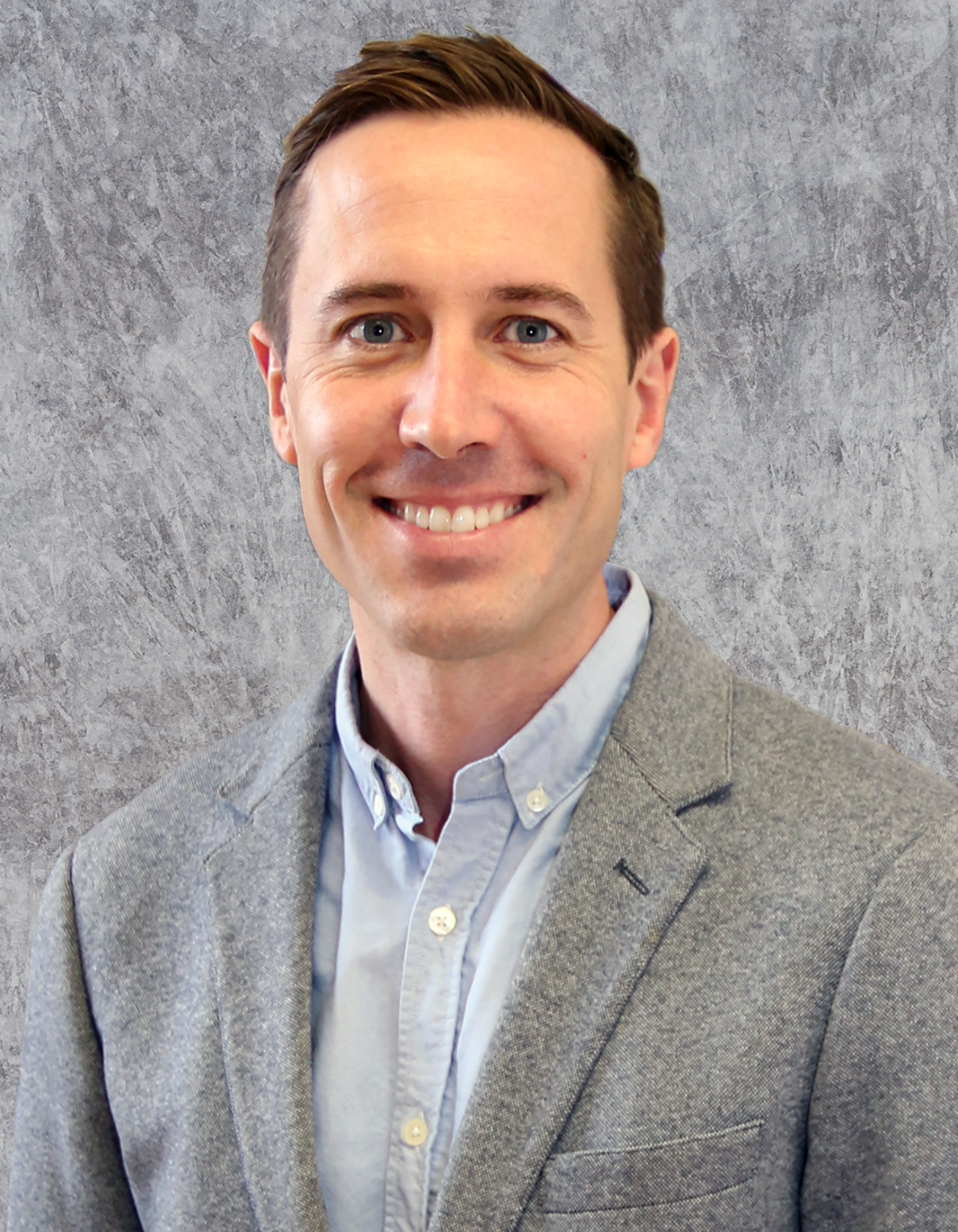 Sean Ackerman, MD is a psychiatrist who joined the Prairie Ridge Columbus Clinic in Winter, 2022. Dr. Ackerman received a Bachelor of Fine Arts at New York University. He completed medical school at the University of Washington School of Medicine in Seattle. He completed a psychiatry residency and fellowship at the University of Vermont in Burlington. He is board certified through the American Board of Psychiatry and Neurology.
Sean Ackerman, MD is a psychiatrist who joined the Prairie Ridge Columbus Clinic in Winter, 2022. Dr. Ackerman received a Bachelor of Fine Arts at New York University. He completed medical school at the University of Washington School of Medicine in Seattle. He completed a psychiatry residency and fellowship at the University of Vermont in Burlington. He is board certified through the American Board of Psychiatry and Neurology.Dr. Ackerman originally wanted to pursue a career in film. “I went to film school but soon after realized I did not want to spend my life in the film industry. I was making independent films and had a job as a one-to-one aid with a boy who had autism.
It changed the way I saw the world. I was inspired by him and wanted to work in the field of autism. I spent a year at the Washington Autism Center. It seemed like it was the psychiatrists that had a role in Autism care that made the most impact.”
Dr. Ackerman worked in both an inpatient and outpatient setting before coming to Prairie Ridge Health, where he specializes in child psychiatry. “It is uplifting to do this type of work, because most of the time people get better. It’s a privilege to be able to sit with people during a time that is one of their most difficult times of their life and for them to trust you and be open with you. It’s wonderful to get to know them because in this setting, they give you their true self, which is incredible.”
Dr. Ackerman’s approach to psychiatry is based on the Vermont Family Based Approach, which emphasizes health and positive lifestyle changes. “Children are deeply affected by their environment. You need to do your best to change their lives and the environment around them. While medications are sometimes helpful, they are not everything. Exercise, sleep, screen time, mental health, community involvement and school all play a role in improving emotional and behavioral health.”
Dr. Ackerman met his wife, Dr. Elizabeth Zeeck in medical school. They moved to the Madison area to be closer to family. In his free time, he enjoys spending time outside with his family and watching movies.
For more information or to schedule an appointment with Dr. Ackerman call 920-623-2200 or visit
By: Emma Hubbard, MS, RDN/CD
Did you know that the average person makes about 200 food-related decisions every day? That’s a lot of thinking about food! Making these decisions can be a challenge when there’s so much conflicting information about how to eat well for your health. That’s where a Registered Dietitian Nutritionist (RDN) comes in!
You might be asking yourself, why should I see a dietitian? How is a dietitian different than a nutritionist? RDNs are food and nutrition experts who are trained to understand disease processes and how food and nutrition can impact health. Dietitians are required to complete a 4-year undergraduate degree, master’s degree, 1200 hours of supervised practice to gain experience in clinical, community, and food service settings, and pass a board exam to earn the credential of registered dietitian nutritionist.
On top of all of that, dietitians are required to complete continuing education to maintain their credentials and stay in the know on the most up to date evidence-based practices. When it comes to getting advice about how to eat, dietitians are ready to help you achieve your health and wellness goals.
Here are just a few reasons you might be interested in meeting with an RDN:
- You have a health condition that can be managed with diet and lifestyle changes.
Diet and lifestyle changes play an important role in the management of many health conditions. These include diabetes, high blood pressure, heart disease, irritable bowel disease, food allergies/intolerance, cancer, kidney disease, and many more. A dietitian can give you individualized recommendations to help you meet your health goals.
- You want to manage your weight.
Many people struggle with weight management. Whether you are looking for guidance on healthy weight loss or weight gain, a dietitian can help with evidence-based recommendations tailored to your specific needs.
- You want to improve your relationship with food.
Diet culture labels foods as “good” or “bad” and often tells us to restrict our food intake. A poor relationship with food can increase stress and lead to disordered eating patterns. A dietitian will work with you to challenge those negative thoughts and heal your relationship with food while still meeting your health goals.
- You are pregnant, breastfeeding, or thinking about becoming pregnant.
Pregnancy impacts your nutrition needs. A dietitian can help you navigate your changing needs before, during, and after pregnancy.
- You want to improve athletic performance.
Nutrition can have a huge impact on athletic performance. The type, duration, and intensity of physical activity can change nutrition recommendations for optimal performance. Dietitians can help athletes with fueling plans to achieve performance goals.
- You want to build healthy eating habits
Making food choices can be tricky. A quick google search of “best diet for health” will give you lots of suggestions – eat high protein, follow a ketogenic diet, go vegetarian, try intermittent fasting, the list goes on and on. The truth is that nutrition is highly individual and no one way of eating works best for everyone. Dietitians are trained to help you find what feels best for your body. RDNs can help you build healthy habits, teach you meal planning skills, help you navigate choices at the grocery store and restaurants, and so much more. Anyone can benefit from meeting with an RDN!
To learn more or schedule an appointment with Emma visit www.prairieridgehealth/nutrition or call 920-623-1295.
